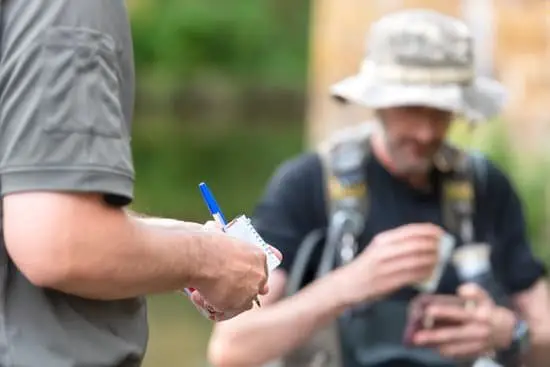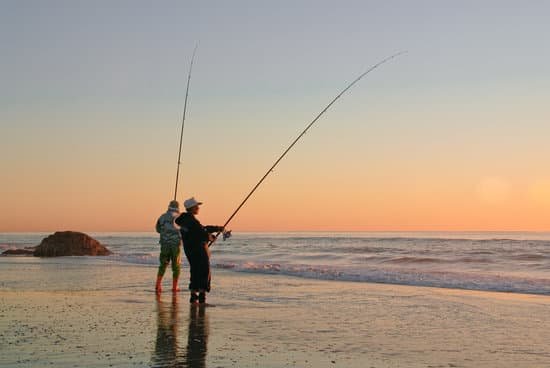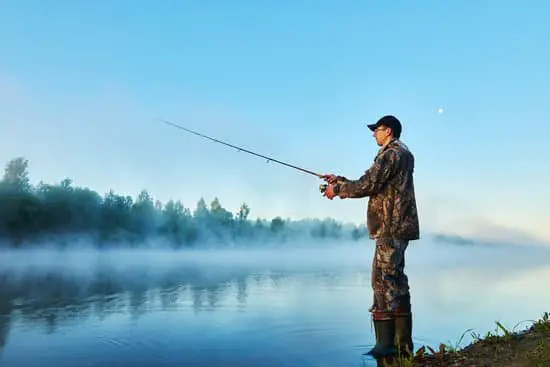Fishing is a popular hobby for many, but you have to be careful. You may not know that if you are caught without a fishing license, the consequences can include fines and jail time. In this article, we will explore what happens when you get caught without your license and what precautions you should take to avoid being in this situation!
What Happens If You Fish Without A License? Fishing without a license is not good. You might only get a warning, but that doesn’t happen usually. Most of the time, you will be given a ticket and fined 50 dollars plus the cost of a fishing license. Repeat offenders could face court and jail time.
What Does the Law Say about a Fishing License?
A fishing license is required from all anglers according to the Fish and Wildlife Conservation Act of 1997. Based on this law, fishing without possession of an appropriate license is illegal. This means you need a license before going ahead with catching fish for yourself or your family as it’s against the rules if not done in accordance with what was established by Congress back in 1997 when they were passing this particular act which states that “no person shall take any game animal…without first procuring such permit.”
Now mind you, there are exceptions made for those who happen to have their own place where they can go out hunting – like say some private property owned by someone else but still open to public access; however, even then permission must be granted beforehand otherwise penalties will apply.
Who Doesn’t Need a Fishing License?
If you’re a young hunter in the United States, then it’s not mandatory for you to have an appropriate license if your state has no hunting and fishing laws. In this case, there are some states which allow youths of certain ages – like say 16-years old or younger.
Some people may not need a fishing license. However, this is unusual and you should double-check whether or not you are part of such groups. It varies by state as well: in some cases 16-year-old anglers do not require licenses to fish but 17-year-olds might; over 65 years old fishermen don’t have to buy one either which means they must carry identification so that police can verify their age if necessary.
In most cases, veterans or military personnel do not need a fishing license to fish in their home county. However, people who want to go out of the state will need one as well as those with disabilities and/or who are participating in therapy sessions.
Additionally, these groups can provide proof that they should be exempt from needing licenses if necessary—but you still have to apply for them just like all other citizens!
Lastly, anyone living on the family property is also exempted from getting licenses but must meet eligibility requirements such as being disabled or partaking of some type of therapeutic activity while fishing there; however, this does not mean it’s free game when visiting public waters without following regulations so please make sure you check your local rules before heading off into unknown territory
Types of Fishing License
Fishing licenses are required for freshwater fishing, saltwater and bay fishing, hunting/fowling. You can purchase a single-year license at most tackle shops or sporting goods stores; alternatively, you may apply online which will take about three weeks to process your request.
Make sure you have the right fishing license before casting your rod. If not, don’t expect a warning from law enforcement- they’ll just give you a ticket, and fine! Some states sell different types of licenses with different expiration dates so make sure to buy one that will work for all seasons or for your situation.
For example, if you are an occasional fisherman who enjoys fishing trips occasionally then a 24-hour permit is the best option. If on the other hand, you like to go fishing every chance that arises and has made it into something of an obsession or hobby then a yearly license will be just fine for your needs.
Where To Buying a Fishing License
The best way to buy a fishing license is online. You can also pick up your license in person at the store or on-site if you are going out on the water with a guide, but this takes more time and effort than just clicking “buy” from home!
Big stores such as Walmart and Target carry fishing licenses you might want to support your local store and buy from a small mom-and-pop tackle shop.
Things You Should Consider Before Buying a Fishing License:
- What kind of fish do I catch?
- How often will I go fishing? If it is one or two times then a 24-hour permit might suffice but if you plan on going out every chance that arises then buying a yearly license would be better.
- Where are you fishing?
Do You Need A Fishing License For Catch and Release?
Fishing licenses are required in the vast majority of states, but there may be some exceptions. National Parks might also have additional requirements for fishing without a license and you should do your research before catching anything.
Texas doesn’t require a license for fishing in state parks if you’re practicing catch and release. While Florida will require a license no matter where you’re fishing or the type of fishing you doing, California can allow it under certain circumstances from its piers.
Final Thoughts
What Happens If You Get Caught Without A Fishing License?
Some people may not realize the repercussions of fishing without a license. This article will give you an idea of what could happen if you don’t have one. Here are some things to know:
-You can be penalized up to $500 and receive jail time, even for a first offense!
-If convicted on felony charges, your chances of getting parole or bail is lowered substantially; in many cases it’s impossible.
-The penalty also includes fines which often end up being more expensive than purchasing a fishing license would be. For example, in Colorado there’s the possibility of having over $1000 worth of fines as well as possible jail time.
In summary, buy a fishing license.






